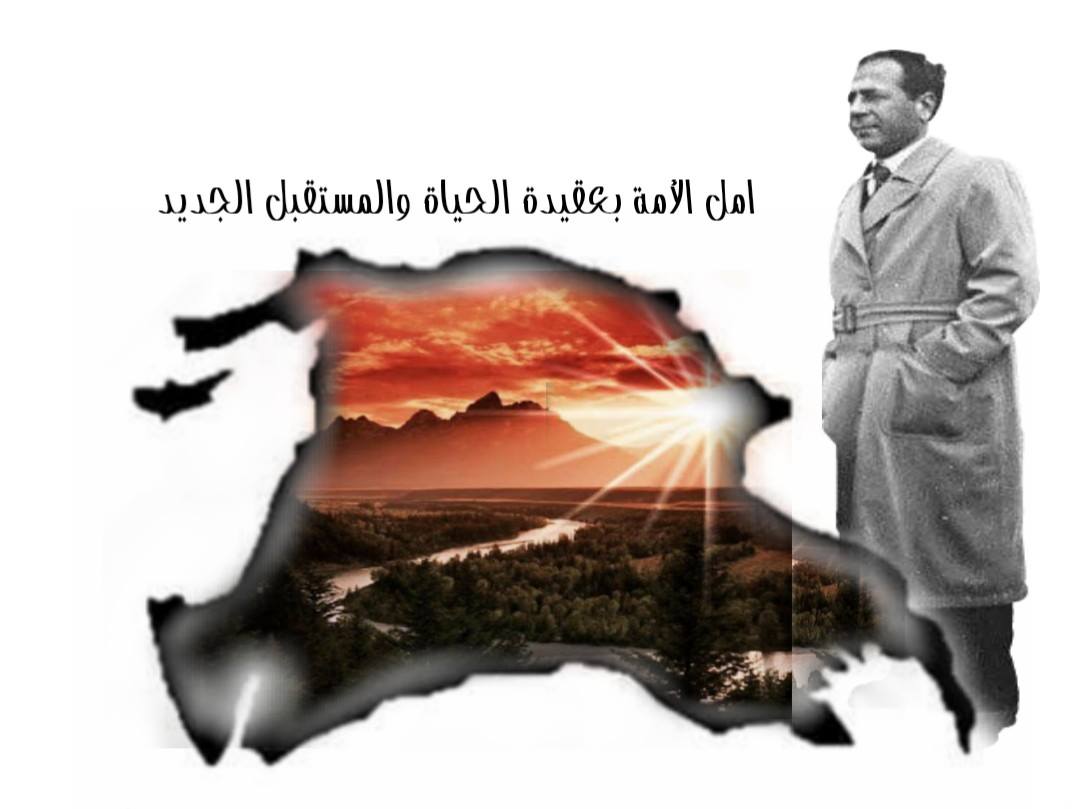It is essential to note the following points:
Firstly, Saadeh derived his vision from a deep understanding of the history of the Syrian nation and its rich heritage of accomplishments and creative feats, enabling him to shape his national project. This means that the revival he spoke of was rooted in the nation’s ancient past and its legacy of struggle. Therefore, applying this vision requires a return to the nation’s luminous history and spiritual-cultural heritage, exploring the practical and combative direction that has characterized our land throughout the ages, while incorporating it into a future-oriented project for revival.
Secondly, Saadeh was highly aware of the social, political, and psychological realities of the nation, and he deeply understood its issues. His knowledge of the reality and its complexities is unsurprising, as he was a scholar and social researcher who began his studies by examining the national question, the concept of the nation, and the issue of communities in general, as well as social rights and how they emerge. In his sociological work “The Genesis of Nations,” he urged the study of “the human social reality in its stages, circumstances, and nature,” emphasizing that a study of this kind is essential for any society that wishes to live, and affirming that every community that wants to advance “must have its members understand the social reality, its conditions, and the nature of the relationships arising from it.”[1] Thus, one of the keys to applying his vision today is understanding contemporary reality in all its complexity. This requires analyzing current social and political conditions scientifically and objectively, deriving solutions to address the core issues facing the nation today, such as sectarianism, social fragmentation, moral decline, economic underdevelopment, cultural invasion, and foreign ambitions.
Thirdly, Saadeh was not isolated from the world; he was well-informed about its innovations and cultures, familiar with international developments and new ideas. He followed global events and developments, analyzing them scientifically and logically. Therefore, applying his vision today requires openness to the world and an understanding of new international changes and their impact on the nation, such as political, economic, and geo-strategic shifts, cyber wars and conflicts, globalization, and the digital economy, with a focus on how to benefit from these for the nation.
Fourthly, Antun Saadeh emphasized the moral and idealistic objectives in his renaissance project, indicating that the revival is not merely material change but includes psychological, ethical, and moral values, essential in building a healthy national society. In his view, life is meaningless without a principle and an ideal to aspire to, “for human life without human principles to uphold and build one’s character and sense of existence is void.”[2] He asserted, “Once a nation has no higher ideal to pursue, it no longer needs freedom and independence.”[3] This reflects Saadeh’s commitment to the new principles he introduced, which constituted an integrated philosophy of life. He saw ethics as essential for the survival and progress of society, and without it, the nation cannot build its greatness; ethics are the means to guarantee the achievement of public good under freedom and peace.
Saadeh’s vision demonstrates that the revival is not limited to economic or political reforms but encompasses all the issues and objectives of national society, establishing a deep ethical system capable of confronting society’s challenges and ensuring human dignity and the nation’s lofty purposes. In this sense, adherence to moral and ideal values is not a secondary option but the essence and core of the revival.
[1] Antun Sa´adeh, Nushu’ al-Umam (The Genesis of Nations), Beirut: Dar Fikr, 1976, p. 14.
[2] Antun Sa´adeh, Al-Muhadarat al-‘Ashr (The Ten Lectures), op. cit., p. 177.
[3] Antun Sa´adeh, The Complete Works, Vol 1- 1921-1934, “Two eras in conflict – Fundamental Principles in National Education”

